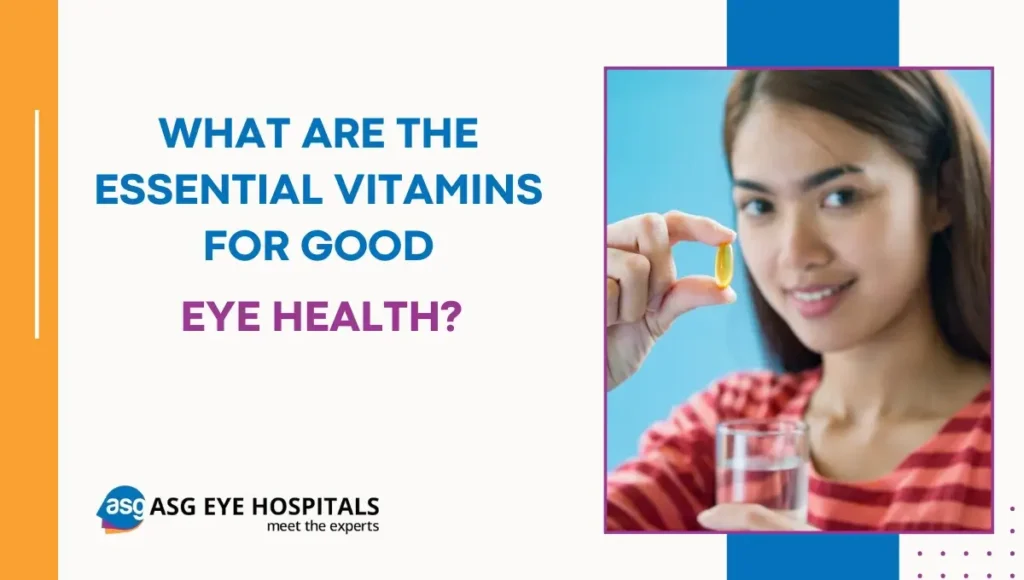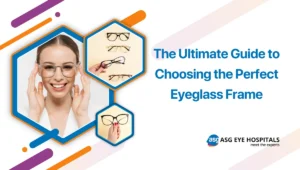In the rush of our modern and daily routine, we forget to care for our eyes. Maintaining eye health is essential for our vision. In the digital world, a sedentary lifestyle involving a busy schedule with excessive computer and phone screens harms our eye health. Our eyes are the most sensitive organ of our body and require a healthy diet with essential vitamins and minerals. Do you know what are the best vitamins for eyes health? Many individuals try to eat healthy to slim down and get in shape, but our vision is also a concern. Consult with eye consultants if you are dealing with any severe condition. Vitamins are not the solution for all conditions. Let’s understand the importance of vitamins for the eyes and how beneficial vitamins are in treating conditions like dry eyes, blurry vision, and macular degeneration.
Which Vitamins are Good for Your Eyes? And How You Can Add Them to Your Diet.
- Vitamin A is like a superhero for your vision. It is an element of the rhodopsin protein, which allows the eyes to see in low-light conditions. Vitamin A keeps our eyes moist and protects the corneal surface. Vitamin A is the best eye vitamins for blurry vision. Its deficiency leads to blindness; hence, to maintain good vision, vitamin A is required. The best sources of vitamin A are carrots, leafy vegetables, spinach, sweet potatoes, yellow veggies, broccoli, and eggs.
- Vitamin B : While many vitamins play critical roles in maintaining eye health, the B-complex vitamins, particularly B1 (thiamine), B2 (riboflavin), B3 (niacin), B6 (pyridoxine), B9 (folate), and B12 (cobalamin), also contribute to the well-being of your eyes.
- B1 (thiamine) – Helps to maintain eye nerves essential for transmitting visual information to the brain. Good sources of thiamine are beans, nuts, and whole grains.
- B2 (riboflavin) – Helps to maintain the cornea health. Rish sources of riboflavin are lean meats, dairy products, almonds, and green leafy vegetables.
- B3 (niacin) – It promotes proper blood flow to the tiny blood vessels in the eyes. Whole grains, nuts, meat, and fish are good sources of B3.
- B6 (pyridoxine) – B6 is involved in neurotransmitter production, essential for transferring signals from the eye to the brain. Rich sources are bananas, poultry, fish, and potatoes.
- B9 (folate) – It is essential for the overall health of cells, including those in the eyes. Legumes, green leafy vegetables, and fortified cereals are good sources of folate.
- B12 (cobalamin) – B12 is essential for nerve health, including the optic nerve that connects the eyes to the brain. Primarily found in animal products such as meat, fish, eggs, and dairy.
- Vitamin C : It is also known as ascorbic acid, a powerful antioxidant that helps to protect your eyes from oxidative stress and supports the formation of collagen, essential for the cornea’s structural integrity and elasticity. Additionally, it promotes the well-being of blood vessels in the eyes, is crucial for optimal vision, and may reduce the risk of cataracts. Sources of vitamin C are citrus fruits like oranges, grapes, lemons, berries, bell peppers, leafy greens, guava, kiwi, tomatoes, and other sources.
- Vitamin D is a multitasker, supporting overall health and possibly reducing the risk of age-related vision issues. Enjoy fatty fish, fortified dairy products, and egg yolks, and soak up sunlight for your Vitamin D boost.
- Vitamin E acts as a bodyguard for your eye cells, shielding them from harm caused by free radicals. Nuts like almonds, sunflower seeds, spinach, and fortified cereals are excellent sources of Vitamin E.
- Lutein and Zeaxanthin. These are like bodyguards for your eyes, protecting them from harmful light waves. They’re especially crucial for the health of your retina. Load up on leafy greens (spinach, kale), broccoli, and peas for these superheroes.
- Beta – Carotene
Carotene is the precursor to Vitamin A, supporting your night vision and overall eye health.
Get your Beta-Carotene from veggies like carrots and sweet potatoes and fruits like apricots.
- Omega- 3 Fatty Acids
These are like the maintenance workers for your eyes, keeping cell membranes healthy and reducing the risk of dry eyes and age-related vision problems.
Find Omega-3s in fatty fish (salmon, mackerel), flaxseeds, chia seeds, and walnuts.
- Zinc
Zinc is the handyman for your eyes, ensuring the retina stays in good shape and preventing vision loss as you age.
Oysters, beef, poultry, nuts, and legumes are rich in zinc.
What is the Best Eye Vitamin for Macular Degeneration?
Omega-3 fatty acids, particularly EPA and DHA, found in fatty fish like salmon, may help reduce the risk of macular degeneration and support overall eye health
What is the Best Vitamin for Dry Eye?
Omega-3 fatty acids and Vitamin A are beneficial for maintaining a healthy tear film and preventing dry eyes. Include sources like fish, nuts, and leafy greens in your diet.
Remember, it’s not just about individual nutrients – a mix of these, with a balanced diet and other good habits, can keep your eyes in top-notch condition. If you ever have concerns about your eye health, consult with eye consultants at the best eye care center.




